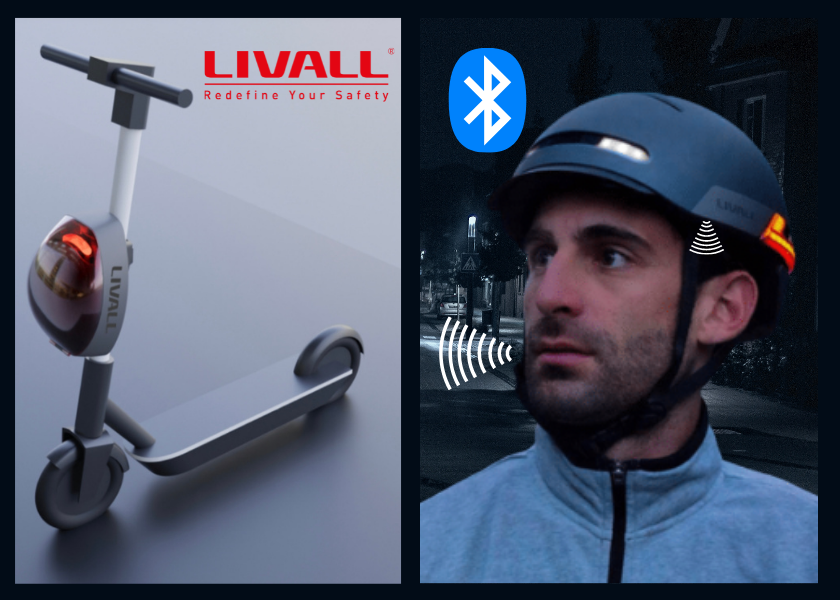
LIVALL PROVIDES A SOLUTION TO ALL THE CHANGES OF THE NEW TRAFFIC LAW
- LIVALL helmets eliminate the need to use a mobile phone or headphones for cyclists and skaters, thanks to Bluetooth and hands-free.
- They also incorporate automatic intelligent LED lights for position and braking, as well as turn signals that can be controlled from the handlebar.
- The SmartCase anti-theft case will allow scooter rental companies to continue in the market.
Today the new Law on Traffic, Vehicle Circulation and Road Safety in Spain has come into force. Here are some of the new changes: the obligation to wear a helmet when driving scooters, the prohibition of the use of invasive audio devices in any type of vehicle or a greater penalty for distractions such as the use of mobile phones stands out.
These changes will entail an adjustment in the habits of the most vulnerable users of the road, seeking a better coexistence with cars. It is also a challenge for scooter rental companies, which need a solution to the mandatory helmet in order to continue with their business model in Spain.
However at LIVALL we have been working for a long time to develop solutions for all these problems:
The use of the helmet on a scooter becomes mandatory
Most of the accidents of these vehicles are falls on the road and collisions with other vehicles, so the most common and dangerous injuries occur in the head. In Spain, there have been 1,300 accidents involving electric scooters with injuries in the last three years, including 16 deaths, the main reason for the new mandatory helmet on scooters.
While traditional helmets offer passive protection that shields the user in the event of an impact, the LIVALL helmetphone anticipates the accident to save lives. They achieve this through a combination of preventive technology in the form of smart lights that automatically detect low visibility conditions as well as decelerations, to automatically activate light signals. In addition, flashing lights controllable from the handlebar allow the user to indicate the change of direction without having to release the handlebar, always maintaining control of the vehicle.
The helmet's sensors are also capable of detecting a fall followed by immobilization, either by stunning or incapacitation, autonomously activating an SOS system that sends the exact location of the injured person via GPS to their pre-established emergency contacts, a system that has already saved lives. .
The perfect solution for scooter sharing: LIVALL Smart Case
The mandatory nature of the helmet also poses a dilemma for scooter rental companies: how to properly integrate a helmet into the structure of a scooter with dozens of daily uses without risk of theft or damage?
LIVALL's proposal to solve this problem is the Smart Case helmet "case". Anchored to the pole of the scooter with a rear hook that allows you to hang bags or backpacks, Smart Case is waterproof, incorporates an anti-theft system and works with remote opening via mobile, providing an ideal solution for both private users and sharing companies.
Prohibition of the use of headphones when driving a bicycle or scooter and penalties for distractions.
LIVALL smart helmets incorporate hands-free technology with a windproof microphone and non-invasive stereo speakers. The sound is projected above the ear at all times, allowing the environment to be heard normally.
The Bluetooth connection with our smartphone allows us to use voice navigation and listen to the radio, music or podcasts, in addition to answering calls by simply pressing a button on the handlebar, without having to release it, thus eliminating the need to use the mobile.
In the words of Manu Marín, co-founder of LIVALL and CEO of LIVALL Europe, “the transport of the future is already our present. This new regulation is adjusted to technology and the new habits of users. That is why at LIVALL we dedicate all our R&D to technological solutions that are one step ahead in safety and prevention”.